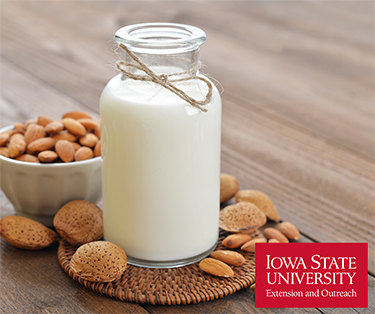Blog

Needs versus wants applies to food
Recently, I did an educational program on Spend Smart. Eat Smart. for employees at a local public health department. A dietitian in the group shared a way her family could save money on milk: “Get my family to drink more water and not always drink milk.” Some in the group seemed surprised that a dietitian would make that suggestion. What did she actually mean? Her point was that she wants her family members to drink the amount of milk they need nutritionally, but not necessarily more than that.

What is Greek Yogurt?
Greek yogurt is becoming more popular. Last week one of my friends asked me what Greek yogurt was…was it yogurt from Greece?

Nut milk, rice milk – Really?
I grew up on a farm and from what I know, milk comes from a cow. It is that white liquid farmers “milk” for us humans before the baby calves get to it. Cow’s milk is a good source of protein calcium, potassium, and Vitamin D (since all cow’s milk is fortified).

Got Milk (Alternatives)?
If you’ve taken a walk through the dairy aisle during the past couple of years, you’ve probably noticed a lot of new products popping up on the shelves, like oat milk or almond milk. As a lactose intolerant person, I have been enjoying this new variety of food options, but as a nutrition student, I wonder about the nutritional value of these products compared to cow’s milk.

